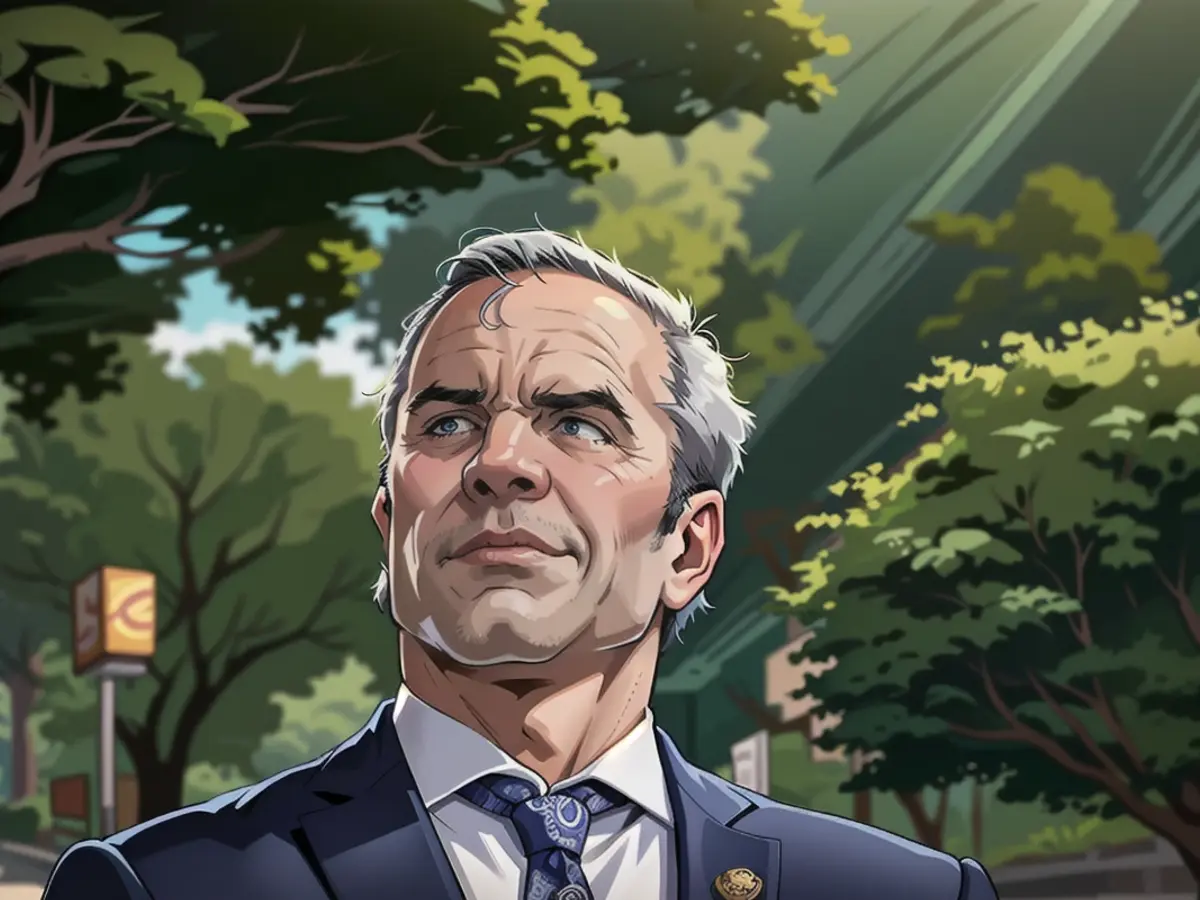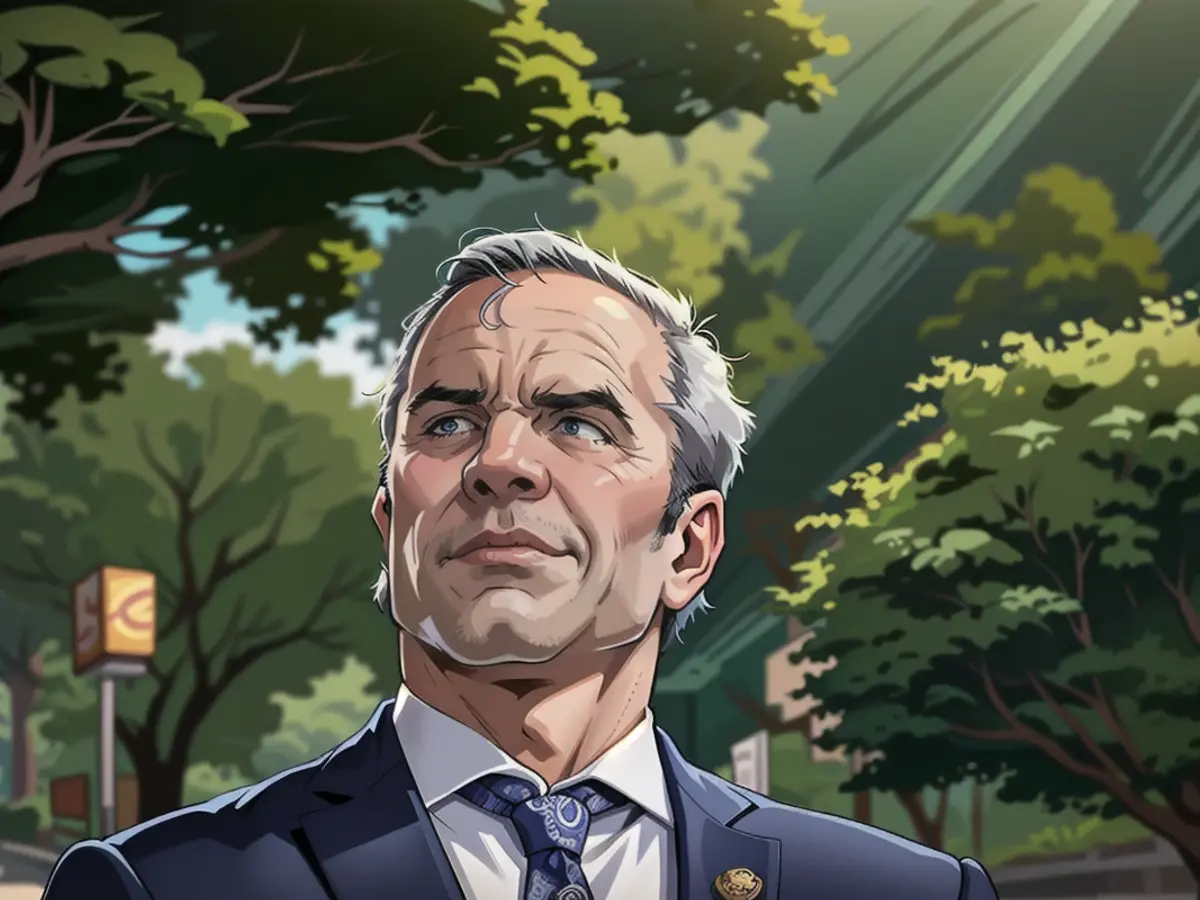Pistorius confrontation arises following European polls.
The ruling coalition is in turmoil, the chancellor is struggling, and a disastrous outcome is expected in the upcoming European elections. Recent talk in the SPD is suggesting that Boris Pistorius could be announced as the new aspirant for chancellor in 2025 this summer. Are these current events affecting Pistorius' reputation negatively?
With pollsters anticipating that the SPD will secure only 14-16% in the European polls, the party faces the possibility of shrinking to the size of the Greens, or even falling behind the AfD. This humiliating scenario would be particularly heartbreaking for the longstanding traditional party.
The silence pact within the SPD, stipulating that no public criticism of the party leadership or chancellor is expressed despite the unfavorable atmosphere, is starting to falter. The first SPD MP to break the silence was Heiko Wittig, head of the party's parliamentary group in North Saxony. "Numerous SPD grassroots supporters believe that Pistorius is undoubtedly our number one," he said. "If Pistorius challenges Friedrich Merz as a candidate for chancellor, the CDU/CSU's 15-point lead will drastically decrease. If things remain unchanged, the SPD will be in for a shocking revelation in the 2025 elections."
Two factors put the SPD under pressure
Wittig's comment resonates with the potential developments within the SPD following the European elections on June 9. A debate on personnel changes and repercussions for Olaf Scholz is highly probable. Two factors contribute to the SPD's pressure: firstly, Olaf Scholz is the least popular chancellor since 1949, and secondly, Boris Pistorius is the most popular politician in Germany. This unique political situation urges a decision for Pistorius to run for chancellor. His popularity is not only evident in survey results, but also enduring. He has topped the popularity rating among politicians for months. Meanwhile, the SPD boasts an equivalent number of well-liked politicians as FC Bayern does coaches.
The SPD leadership has mentioned a "window of opportunity" existing between the European elections and the state elections in autumn. Some party members are attempting to persuade Scholz to voluntarily relinquish his candidacy in 2025; should he do so, the party would be better positioned for the following year's elections. The challenge is that the chancellor will likely recognize the implications of a probable European election disaster for the SPD, as well as the weak prospects of the traffic light coalition in eastern Germany. With a possible 5% decline in support in Saxony and Thuringia approaching, Scholz's chances of being re-elected in 2025 are nearly negligible. Very few in the SPD leadership anticipate that the coalition will strengthen or gain more power in the final stages. Therefore, the SPD must act now and appoint Pistorius to signify a new beginning - an event that seems "virtually mandatory". Pistorius already resembles "a chancellor-in-waiting".
The opportunity window opens
In secret conversations, most prominent SPD representatives are no longer defending Scholz. Most admit that he appears "self-centered and passive," and "the government is slipping from his grasp." With shallow support for Scholz inside the SPD, only a few are still actively promoting him. The party's leader, Lars Klingbeil, persistently states that Scholz will remain chancellor and the candidate for chancellor. However, this statement reads more as a ritual of devotion, rather than a genuine belief.
On the other hand, Pistorius is not well-loved by the left and peace-oriented faction in the SPD. Scholz is keenly aware of this and has been fueling this defensive stance for several weeks to shore up his position. He has publicly opposed Pistorius' budget requests, and in the Baltic states, he ignored the minister's stance on military policy. Additionally, in the European campaign, Scholz has traded the military reversal for an altogether more vocal stance on peacekeeping. Aside from the Chancellor's support, Pistorius now experiences difficulties pushing his agenda forward in the parliamentary group. The infamous remark "I don't have to do this" has escaped him, hinting at a clear choice between Scholz and him.
The window of opportunity is opening wide.

Read also:
- Year of climate records: extreme is the new normal
- Precautionary arrests show Islamist terror threat
- UN vote urges Israel to ceasefire
- SPD rules out budget resolution before the end of the year
- Despite the turmoil within the ruling coalition and the expected poor performance in the European elections, Boris Pistorius, a potential SPD chancellor candidate for 2025, remains popular among grassroots supporters.
- Olaf Scholz, the least popular chancellor since 1949, is facing pressure from within the SPD to step down in 2025, with Boris Pistorius being seen as a potential replacement.
- The silence pact within the SPD is starting to break down, with SPD MP Heiko Wittig suggesting that Pistorius' challenge to Friedrich Merz for the chancellorship could significantly reduce the CDU/CSU's lead.
- The Ministry of Defense, led by Boris Pistorius, is a contentious issue within the SPD due to Scholz's opposition to Pistorius' budget requests and policy stances, making it difficult for Pistorius to push his agenda forward.
Source: www.ntv.de








